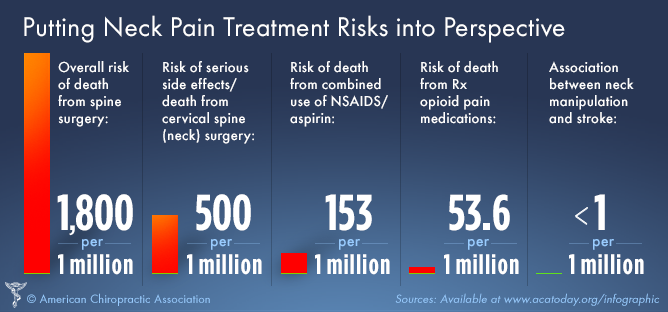The Role Of Nutrition In Pain In The Back Monitoring: Foods To Consume And Prevent
The Role Of Nutrition In Pain In The Back Monitoring: Foods To Consume And Prevent
Blog Article
Personnel Writer-Hsu Hardin
When it pertains to managing your back pain, the food options you make can substantially impact how you really feel on a daily basis. Think of being able to alleviate your pain just by adjusting what you eat. By understanding the role of nutrition in pain in the back administration and recognizing which foods to integrate or avoid, you can take positive steps towards a healthier and more comfortable way of living. click here for info in between nutrition and back wellness is extra profound than you might understand-- let's discover how particular foods can either relieve or worsen your neck and back pain.
Importance of Nutrition in Neck And Back Pain
Nutrition plays a critical function in handling back pain. Your diet plan can dramatically influence swelling degrees and general pain levels in your back. Eating a balanced diet abundant in nutrients like vitamins D and K, calcium, magnesium, and omega-3 fatty acids can help reduce inflammation and enhance bones, which are essential for back health.
In addition, keeping a healthy weight via proper nutrition can minimize stress on your back, lowering the risk of neck and back pain.
Additionally, certain nutrients like anti-oxidants located in vegetables and fruits can aid combat oxidative stress and promote recovery in the body, including the back muscles and spinal column.
On the other hand, consuming extreme quantities of processed foods, sugary drinks, and harmful fats can add to swelling and weight gain, intensifying back pain.
Foods to Consume for Back Wellness
To support a healthy back, incorporating nutrient-rich foods right into your everyday dishes is key. Including https://pain-clinic-chiropractic40627.blogrenanda.com/38239229/reveal-the-keys-behind-neck-pain-and-how-comprehending-cervical-back-anatomy-can-aid-you-locate-relief in antioxidants like berries, spinach, and kale can help reduce inflammation in your back, easing pain and discomfort. Omega-3 fatty acids located in fatty fish such as salmon and mackerel have anti-inflammatory properties that can benefit your back health and wellness.
Furthermore, consuming nuts and seeds like almonds, walnuts, and chia seeds provides crucial nutrients like magnesium and vitamin E, which sustain muscle mass function and decrease oxidative stress. Integrating lean proteins such as chicken, turkey, and tofu can aid in muscle fixing and maintenance, advertising a strong back.
Don't neglect to include dairy products or strengthened plant-based choices for calcium to sustain bone health. Lastly, relevant resource site with plenty of water to keep your spine discs moistened and working efficiently. By consisting of these nutrient-dense foods in your diet plan, you can nurture your back and assistance overall spine wellness.
Foods to Avoid for Back Pain
Select preventing processed foods high in sugarcoated and trans fats when seeking relief from pain in the back. These kinds of foods can add to swelling in the body, which may exacerbate pain in the back. Say no to sweet snacks like candy, pastries, and sugary beverages, as well as convenience food products like hamburgers, french fries, and fried poultry that are usually loaded with trans fats.
In addition, steer clear of foods including high degrees of refined carbohydrates, such as white bread, pasta, and pastries, as they can increase blood sugar levels and potentially worsen inflammation in the body.
It's likewise a good idea to limit your intake of foods high in saturated fats, like red meat and full-fat milk products, as they can add to inflammation. Processed Recommended Online site like deli meats, chips, and packaged snacks are frequently high in saturated fats and must be consumed in small amounts.
Verdict
To conclude, focusing on your diet regimen and making wise food options can have a considerable effect on taking care of pain in the back. By incorporating nutrient-rich foods like berries, fatty fish, nuts, and lean proteins, and avoiding refined and sugary items, you can help in reducing inflammation and support overall back wellness. Bear in mind, what you eat plays a crucial role in just how you really feel, so see to it to prioritize your nutrition for a healthier back.
